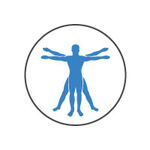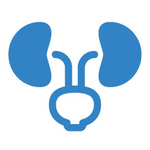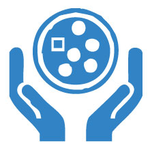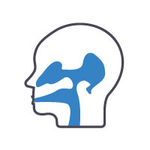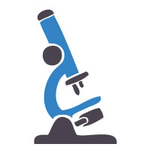
Podiatry Course Details - Fees, Subjects, Syllabus, Duration, Eligibility, Career Scope
Degrees offered: B.Sc.(Hons), M.Sc., B.Sc.
What is Podiatry
Podiatry is a branch of medical science that deals with the lower half of the body, particularly the legs and feet. They are sometimes involved in diagnosing issues of the lower abdomen, too. Popularly known as foot doctors, they specialise in issues of the ankles, the feet, the palm, and the toes and fingers of the feet.
The feet and ankles form one of the most important parts of our body. They perform functions of locomotion and skill development, such as dancing and athletics. These limbs are used greatly in our everyday life. Due to the serious use of our feet and ankles, they are also more prone to injuries and pain. To manage these ailments, podiatry comes to the rescue.
Podiatrists can be involved in different branches of the field, such as specialisations in wound care, paediatrics, sports medicine, diabetes, and surgery. They analyse the conditions of the feet and diagnose any ailments or disorders that may be present. They also provide treatment for these ailments through exercises, special footwear, and improve the patient’s mobility. They are responsible for performing foot surgeries if required, which can range from fracture repairs to correcting foot deformities. It is a growing field in medicine that offers good career opportunities.
Eligibility Criteria (UG & PG) of Podiatry
Bachelor’s- Interested candidates:
- Must have qualified 10+2 level from a recognised educational institution.
- Must have pursued Physics, Chemistry, Mathematics/Biology at the 10+2 level. English is a compulsory subject.
- Must achieve a minimum 50 per cent aggregate score.
Master’s- Interested candidates:
- Must possess an MBBS degree.
- Must have achieved 45-55 per cent aggregate in the MBBS level.
- Must have finished the one-year internship.
Entrance Exams for Podiatry
Any MBBS student must mandatorily write NEET. After filing an application for NEET and completing the registration procedures, they will receive their admit card and will be allowed to attend the exam. These NEET scores will determine their entry into any institution for podiatry. The admissions are merit-based, and the better their NEET score, the better the institution of study.
After this selection is done, the students are called for counselling in order of their scores. They are then asked to select their preferred college from the choices provided to them, which depends on the NEET score.
After completing MBBS, the student can pursue DPM from any institution offering it. These institutions have their entrance examinations, which must be passed for entry. They can also be admitted based on the NEET scores. After completing the DPM, they have to apply for a license to practice podiatry, as one cannot practice medicine without a license.
MBBS Exams:
NEET: The National Eligibility cum Entrance Test is overseen by the National Testing Agency. This is the entrance examination for all students who wish to study medicine or dentistry courses in India. Entry is given to both government and private colleges based on this test. This test contains 180 questions with negative marking.
College Predictors VIEW ALL
Scope of Podiatry in India and Abroad
Employment in the podiatry sector is expected to grow by six per cent between 2018 to 2028. As people age, more issues and pains arise concerning the feet and legs. Due to this, there is an increased demand for podiatrists. Podiatry is a well-growing sector with good employment opportunities.
It has a very wide scope in India, as well as abroad, because people all over the world suffer from ailments of the legs and feet. The increasing rates of other chronic conditions, such as diabetes and obesity, can also contribute to these ailments, thus creating further demand. Further, as there are only limited colleges that offer podiatry courses within the country and outside, the job prospects are good because there will not be a cut-throat competition.
Course Subjects
- Internal medicine
The course subjects will vary based on the institution, but some of the basic subjects involved are:
- Introduction to Podiatry Medicine
- Biochemistry
- Research Methodology
- Neuroanatomy and Gross Anatomy
- Physiology
- Medical Microbiology
- General and Podiatric Radiology
- Physical Diagnosis
- Surgical Principles
- Applied Orthopaedics
- Pathology
- Applied Lower Extremity Anatomy
- Biomechanics of the Foot
- Internal Medicine
- Pharmacology
Careers in Podiatry
Apart from these careers, there are many other opportunities available, some of which include:
- Foot Orthopedist
- Podiatric Surgeon
- Foot Specialist
- Diabetic Podiatrist
- Sports Podiatrist
- Biomechanics Specialist
- Podiatric Researcher
Upcoming trends
Advancement in technology is affecting all sectors of the economy, not leaving podiatry behind. New and better equipment and tools are helping podiatrists in carrying out their jobs more effectively and quickly. There is increased access to services, and the expenditure in this field has also increased, owing to the growth of the field.
Podiatry is crossing over to other disciplines of medicine as well, which is leading to an evolution in the sector. The percentage share of these services to the GDP has remained steady over the years, and this trend is expected to continue in the future. Podiatry will continue to grow and experience new trends along with the growth in the medical industry.
Job Profiles and Top Recruiters
DPM students are offered tons of job opportunities and profiles. Jobs are offered by the government and the private sector. Some of the main job profiles under this sector include:
| Job Profile | Descriptions |
|---|---|
Podiatrist | Podiatrists analyse and assess the conditions of the feet of their patients and diagnose any ailments or disabilities. They also come up with treatment plans for these ailments. They are trained to perform surgical operations, if and when required. |
Podo-dermatologist | Podo Dermatologists collect skin samples from the feet and conduct tests to analyse them. They come up with various diagnoses and provide treatments based on the tests. They also provide advice and skincare tips for the feet. |
Podo-paediatrist | A podo-paediatrist studies children’s feet to identify any early stages of foot deformities or disabilities. They help children recover from deformities in the early stages through massages, exercises, and in extreme cases, surgery. |
Podiatric Physician | A podiatric physician also diagnoses different ailments after analysing the feet of the patients. They recommend treatments to the patients and help with some basic exercises and massages. However, they are not qualified to perform surgery. |
Rheumatologist | They work for the treatment of rheumatism and its conditions, such as joint pains, autoimmune diseases, arthritis, and osteoporosis. They also treat soft-tissue injuries and sports injuries. |
Top Recruiters
Podiatrists are recruited in both the public as well as private sectors. Some of the important recruitment offices include those of:
- Hospitals and Clinics
- Physicians’ Offices
- Federal Government Establishments
- Rehabilitation Centres
- Health Maintenance Organisations (HMO)
- Preferred Provider Organisations (PPO)
- Department of Veterans Affairs
- Municipal Health Departments
- Health Profession Schools and Universities
Average Salary
Different job profiles under podiatry earn different starting salaries. However, a few of the expected average salaries for different profiles lie around:
| Job Profile | Average Salary |
|---|---|
Podiatrist | Rs. 11-21 LPA |
Pododermatologist | Rs. 7-11 LPA |
Podopaediatrist | Rs. 5-8 LPA |
Podiatric Physician | Rs. 3-5 LPA |
Rheumatologist | Rs. 12-19 LPA |
Required Skillset for Podiatry
Podiatry is a specialised branch of medicine, which means that, other than having strong technical knowledge and experience in the field, some other extra skills are required for these students. These skills include:
- Interpersonal Skills: A DPM student must have excellent interpersonal skills. These doctors work in close contact with the patients and therefore must be good at interacting with them. They must be able to explain medical terminology and conditions in layman’s terms. They may also have to work in teams, especially during surgery, which makes good communication and interpersonal skills important.
- Critical Thinking: Critical thinking is another important aspect of podiatry. DPMs must be able to think and reason critically and innovatively. They must be able to quickly diagnose ailments of the feet and discover solutions for them.
- Calm Demeanour: Podiatrists must have a calm demeanour. Since they work closely with patients, they must be calm and rational and help soothe and comfort the patients while completing their job.
- Detail-Oriented: A podiatrist must be detail-oriented to provide accurate diagnoses and treatment. They must take into account a patient's medical history and other factors before deciding on a treatment plan.
Course Curriculum for Podiatry
The curriculum of podiatry involves the theories and skill development required to excel in the profession. A few of the important subjects include podiatry medicine, the anatomy of related organs, pharmacology, and applied orthopaedics. The curriculum itself changes across different universities but, the main aim is to provide sufficient skill in the field to help people and land well-paying jobs.
Popular Podiatry Entrance Exams in India
Frequently Asked Questions (FAQs)
Question: What are the best-paid professions in DPM?
Answer :
Some of the best-paying professions in DPM include podiatrists, podiatric surgeons, lecturers in colleges, researchers, sports podiatrists, diabetes podiatrist, podo-paediatrics, and podo-dermatologists, etc.
Question: What is the difference between MD and DPM?
Answer :
An MD student spends the same amount of time in college as a DPM student. An MD student, however, learns about different areas and organs of the body while a DPM student spends all this time studying in detail about feet, ankles, and legs.
Question: Which are some popular colleges for DPM abroad?
Answer :
Some popular colleges abroad include the University of Brighton (UK), University of Western Australia (Australia), University of Newcastle (Australia), and Saint Francis University (USA), among other universities.
Question: Which are some DPM colleges in India?
Answer :
Some of the best colleges for DPM include Silchar Medical College and Hospital (Silchar), Bhagwan Mahaveer Jain Hospital (Bengaluru), Amrita Institute of Medical Sciences and Research Centre (Kochi), Diabetic Foot Society of India (Ahmedabad), among others.
Question: What is the key difference between a podiatrist and an orthopedist?
Answer :
A podiatrist is not a medical doctor. They go to special schools and receive separate licenses to practice their profession. They help solve minor foot ailments and deformities and can also perform surgeries for some specific issues. An orthopedist is a certified medical doctor. Orthopedists are allowed to treat other areas of the body apart from the foot and ankle if the cause of the foot ailment lies in other areas such as the hip.
Questions related to Podiatry
want to enquire about any MSC PODIATRY ONLINE COURSE AVAILABLE ?
Nsc in podiatry through distance education mode is available at Queen Margret University.
Duration of the Course is 2 years .
The Course gives you opportunity to study at your own convenience.
Msc in podiatry offers a route to graduates of non podiatry degree to convert to a














 Answer later
Answer later